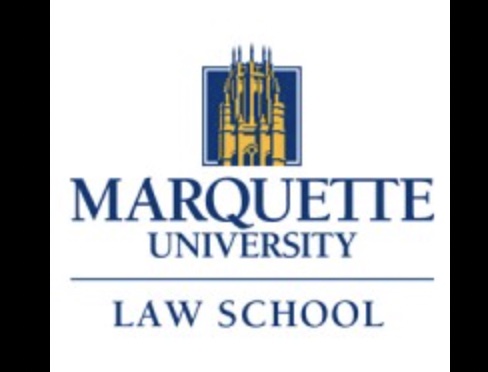. . DEMOCRATIC PARTICIPATION . .
An article by Rebecca Kelliher in Diverse, Issues in Higher Education
Marquette University recently announced its creation of the Andrew Center for Restorative Justice at Marquette Law School. To establish the Center, Marquette alumni couple Louis and Suzanne Bouquet Andrew have committed $5 million. Janine P. Geske, a retired professor of law at Marquette and a current trustee of the University, will be the Center’s inaugural director.

In a statement, Geske described restorative justice as “a powerful, peace means for addressing conflict, promoting healing, and facilitating problem solving that differs from current mediation practices.” Until 1998, Geske had been a justice of the Wisconsin Supreme Court before teaching restorative justice to students for about twenty years. Prior to her retirement at Marquette, Geske directed the Law School’s Restorative Justice Initiative.
“It has been my dream to have a permanent restorative justice program at Marquette Law School,” she said. “As a judge and attorney, I experienced both the successes of our criminal justice system as well as its failures in bringing restoration to victims and communities harmed by crime. I left the bench because I wanted to help better address the needs of those who have been harmed and marginalized in society.”
The Center will build upon Geske’s work, training law students in how to use restorative justice at local, national, and international levels. Restorative justice often involves lawyers, judges, or other professionals who engage in a guided civil dialogue to address conflict, promote healing, and facilitate problem solving. Such dialogues can be between the victim, the victim’s family members, the offender, and other members of the impacted community.
(Article continued in right column)
Restorative justice, What does it look like in practice?
(Article continued from left column)
“I am most excited that this gift will enable us to continue Janine’s restorative justice work in a robust way and thereby help give our students a broad sense of what the possibilities are for lawyers in not just the legal system per se but in serving the community generally,” said Joseph D. Kearney, dean of Marquette Law School and a professor of law.
He noted that recent years have drawn greater attention to how a crime harms not only the victims but surrounding communities. A restorative justice approach aims to mend these ripple effects alongside or separate from the formal processes of the legal system.
“This is not intended in most instances to be an alternative to traditional criminal law or a way for people who have committed a substantial wrong to get a lesser consequence for their action by making a face-to-face apology,” said Kearney.
The Center will also support faculty research and strengthen restorative justice work in the wider community. Geske previously participated in restorative justice efforts that addressed bullying in primary and secondary schools, for instance. This sometimes involved creating a safe setting for a student who was bullied to enter an open dialogue with the student who did the bullying. Through the Center, such community work could be expanded, including training school counselors in similar techniques.
Kearney added that restorative justice can be highly sensitive work. In some cases, a facilitator like Geske could work with an offender and victim for up to a year on taking steps toward restorative justice before deciding it is appropriate for the two to have a face-to-face discussion.
“And in some instances, it will be evident that it will not be appropriate, that there may be too great a risk of re-traumatizing the victim,” said Kearney.
Such delicacy in restorative justice highlights to Kearney why someone as skillful as Geske is an ideal person to come out of retirement to get the Center off the ground. Later this month, Geske will facilitate the Center’s launch and, while director, help search for its permanent director.
“It is so exciting that because of the Andrews’ generous gift, we will be able to permanently support the teaching, practicing, and promoting of restorative processes to some of our society’s greatest problems,” she said.